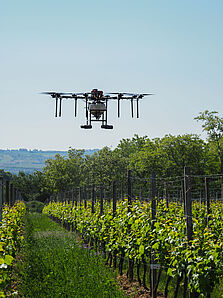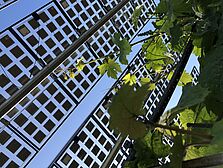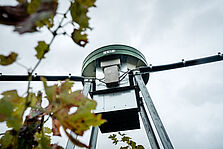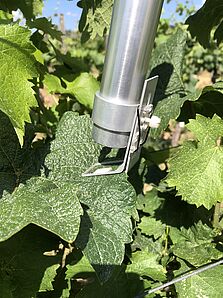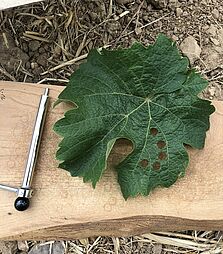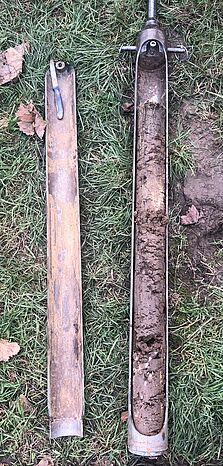The Call for Abstracts will be open soon.
The organizing team of the GiESCO 2025 is looking forward to achieve your abstracts. Do you have any questions? Contact us at giesco2025(at)hs-gm.de.
Sessions
Abiotic stresses are diverse such as changing water availabity, increasing temperatures, elevated CO2 and increased sunshine hours, to name only a few. Grapevines have to deal with the changing environment. How plants respond to abiotic stresses is part of the session. Besides that, grapevines are exposed to diseases and pathogens for example to Plasmoparaviticola, Botrytis cinerea or Drosophila suzuikii. How does these biotic stresses altering the grapevine performance? Are there adaptation strategies?
Abiotic and biotic stresses pose significant challenges to grapevines, impacting their growth, yield, and overall performance. Understanding how grapevines respond to these stresses and what adaptation strategies they employ is crucial for improving vineyard management and ensuring sustainable grape production.

Organic and biodynamic viticulture as two possible sustainable management systems are gaining more and more importance in viticulture since more than two decades. All aspects of organic and biodynamic viticulture such as cover cropping, under-vine management, composting, and different spraying regimes can be issued in this session. While facing challenges such as global warming and its implications, the assessment of sustainability of viticulture systems is crucial for further developing practical solutions. Thus, sustainability assessment of different viticulture systems as well as methodologies for sustainability evaluation in viticulture can be addressed here
Developing grapevine varieties with enhanced tolerance to both abiotic and biotic stresses through traditional breeding or genetic engineering is a primary adaptation strategy. Breeding of new varieties e.g. fungi resistant varieties, grapevines with loose bunches, drought tolerant varieties helps to mitigate climate change. But also the belowground plant material can contribute to the spread of vines in less favourable conditions. Selecting appropriate rootstocks that are more resistant to drought, salinity, or soil-borne diseases can improve grapevine resilience to abiotic and biotic stresses. With new digitizing technologies it is possible to understand the difference in root growth of rootstocks.
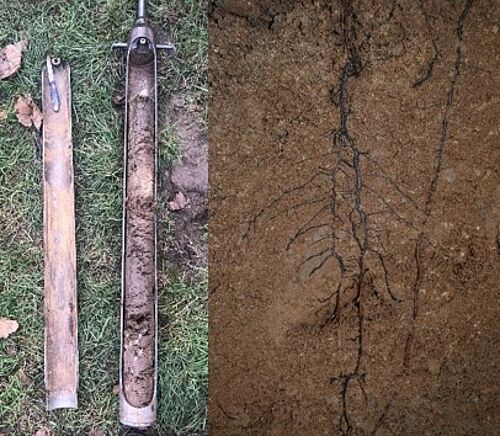
The soil has a very diverse and complex effect on vine growth. Vineyard soil management practices can be considered as a first protection strategy to improve grape quality and reduce the effects of climate change. At the same time, viticulture must also face up to the challenges of water availability, irrigation requirements and scheduling. Soils with low water-holding capacity in particular suffer from hot, dry summers. However, drought stress can also occur in vineyards with a high water-holding capacity if the soil is not sufficiently replenished during winter. In the future, this will also raise questions about the quality of the vineyard sites. In many areas, viticulture must develop methods and concepts in order to continue to produce high-quality wine profiles typical of the region under rapidly changing conditions.
The integration of digitisation, mechanization, and robotics in viticulture represents a technological revolution that addresses key challenges faced by the industry (e.g. labor and resource efficiency, documentation etc.). These technologies enable grape producers to operate more efficiently, sustainably, and profitably. By leveraging precise data, reducing labor dependency, and enhancing operational accuracy, viticulturists are enabled to tackle societal, environmental and economic challenges. Embracing these innovations not only ensures higher quality wine production but also promotes a more sustainable and resilient viticulture industry.

Maintaining and improving biodiversity in vineyards is one major future challenge. The assessment of biodiversity can range from microbiome assays to monitoring of flora and fauna up to an assessment of biodiversity on a regional scale throughout a multiple range of measures. Effects of strategies improving biodiversity within the vineyard such as the use of cover crops, the reduction of pesticide use as well as effects of agroforestry, intercropping as well as the creation of different habitats on a farm-scale or regional scale can be presented here.
Data management and modeling are key strategies that significantly improve the outcomes of grapevine research. Research data management ensures the quality, accessibility, and preservation of research data, fostering exchange and collaboration among researchers. Modeling provides a deeper understanding of grapevine metabolism and complex grapevine-environment interactions, and is vital for predictive as well as ideotype breeding strategies. Together, these strategies enable researchers to match genotypes and environments, optimize resource use and vineyard management, and develop resilient grapevine varieties, ultimately advancing the science and practice of viticulture.
Professional Day

Bringing together practitioners and researchers we will need to address adaptation and mitigation strategies for climate change and focus better implement technologies and practices known as smart viticulture. We will need to raise awareness of new ideas, importance and benefits of biodiversity or how we will be able to reduce or displace emissions or enhance removals. Vineyards are usually cultivated in soils characterized by low soil organic carbon content and have high risks of soil erosion and degradation. How will vineyards of the future be managed or how will we combine viticulture and electricity production creating additional synergies.

The news of Freixenet temporarily laying off a large part of their workforce due to a devastating drought is only the most recent and visible symptom of an industry highly affected by climate change. There is however little knowledge about viticultural possibilities to sustainably maintain productivity, typicality and suitability for sparkling wine production under changing climatic conditions. This session is dedicated to address this specialized topic, opening a dialogue with sparkling wine enologists.
Proceedings
The Proceedings of the GiESCO 2025 will be available on IVES Conference Series. Several articles will be selected by the scientific comitee to publish in a special issue of OENO One. The deadline will be announced soon.
Abstract types
Special Scientific Oral (SSO)
Full oral presentation, publishing in a peer-reviewed journal. OENO one will edit a special series based on a selection of 23rd GiESCO SSO. At the meeting, time slot dedicated to SSO will be appx. 12 min of presentation + 3 min of questions.
Scientific Oral (SO)
SO corresponds to original results that authors want to present at the meeting while keeping their data for further publication. Time slot dedicated to SO will be appx. 10 min of presentation + 3 min of questions.
Professional Day Oral (PDO)
PDO corresponds to professionally-oriented communications, I.e. dealing with extension or reviewing technological topics. A Professional day will be organized during the meeting for PDO sessions. Time slot dedicated to PDO will be appx. 12 min of presentation + 3 min of questions.
Flash Oral (FO)
FO corresponds to short presentations highlighting very new scientific topics and/or original provisional results. Time slot dedicated to FO is apx. 5 min for presentation + 2 min for questions.
Poster communication (PC)
PC corresponds to research confirming or complementing previous reports (e.g. extending previous findings to different varieties or regions). Poster sessions will be organized during the meeting.
Young Researcher Poster Award
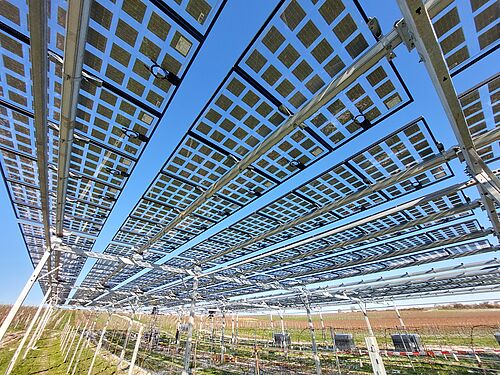
Young scientists are welcome to apply for the Poster Award. Sign in as a PhD student at the abstract submission mask, a comitee will jugde your poster at the poster session!
Good luck!




